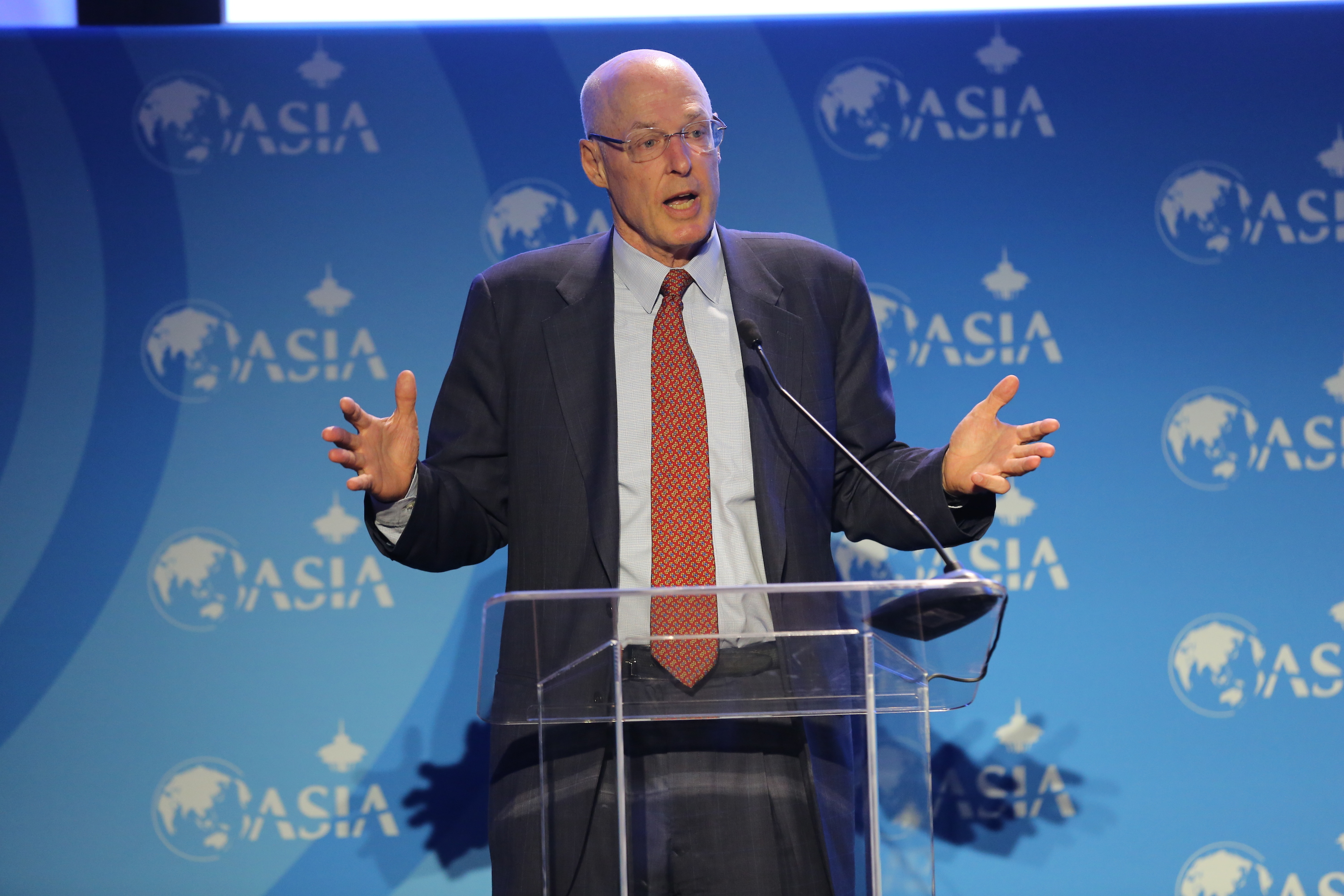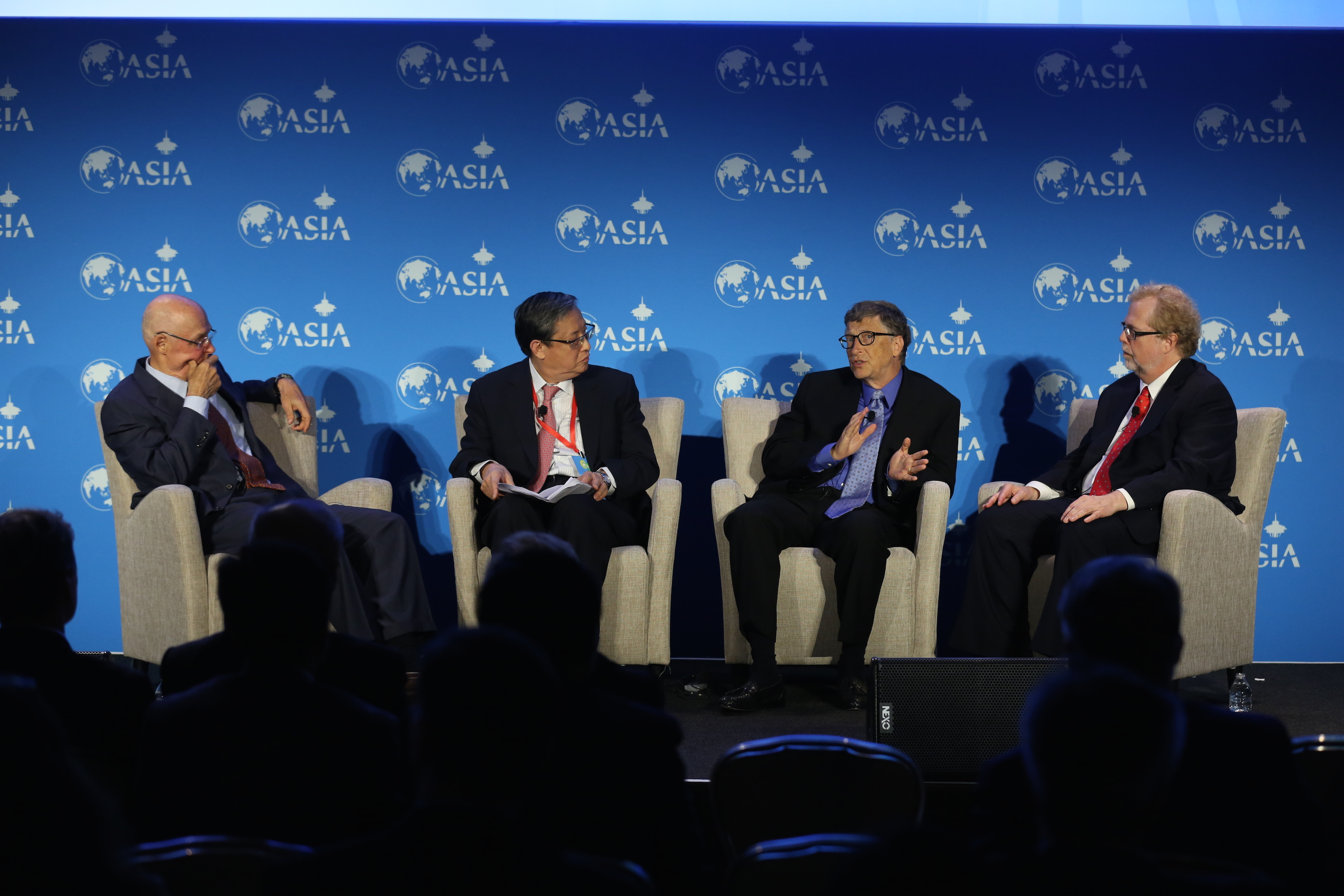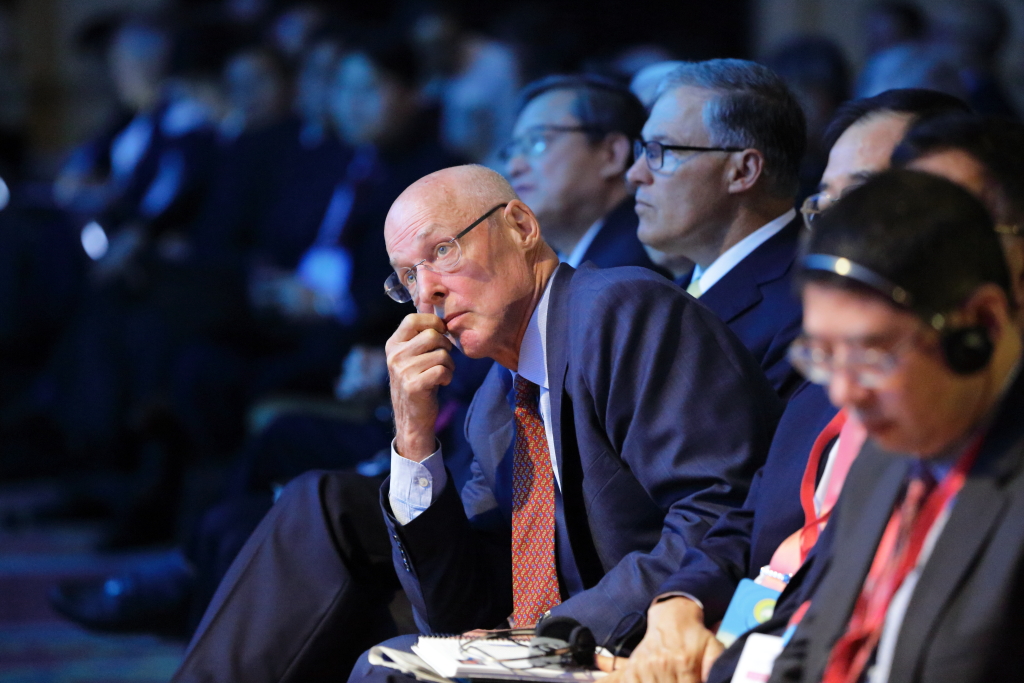Speaking at the Boao Forum for Asia in Seattle on Sept. 5, 2014, Paulson Institute chairman Hank Paulson announced the launch of the Institute’s Climate Change and Air Quality Program, which will advance efforts in the United States and China to curb the impacts of climate change and work toward solutions for the air pollution problem.
In an on-stage discussion with China’s former ambassador to the United States, Zhou Wenzhong, Paulson stressed the importance of the United States and China working together to address the global problem of climate change. “As the world’s largest economies, energy producers and carbon emitters, I believe our two countries have the opportunity to lead the world on this issue,” Paulson said. “That is why I focus much of my effort on China’s environmental issues.”
Paulson explained that the new Climate Change and Air Quality Program will focus initially in China on helping to tackle the country’s air quality problem. “We’ve just got to get traction on this issue,” Paulson said, adding that the Institute is well positioned to do positive work in the area of climate change. With the new program, the number of professionals working in the Paulson Institute Beijing office will increase significantly.
The Boao Forum for Asia is a non-government, non-profit forum for leaders in government, business and academia in Asia and around the world to share visions on the most pressing issues facing the world. This year’s conference is focused on sustainability as it relates to energy, health, intelligent urban design and international relations.
After the one-on-one conversation, Paulson and Zhou were joined onstage by Microsoft founder Bill Gates and technology guru Nathan Myhrvold for a wide-ranging conversation about China’s role in the world and ways to spur international innovation.
At the event, Paulson also talked about the US-China relationship. He suggested that the two countries need to communicate more effectively in order to avoid misunderstandings about motives and intentions. He also called for reforms as a way to get both economies onto a more sustainable and complementary footing.
“The US-China relationship is the most important bilateral relationship in the world and also quite complicated,” Paulson said. “We have many shared interests around the world, but have yet to translate these into coordinated approaches.” Paulson added that concluding a Bilateral Investment Treaty would help both countries, promoting greater two-way investment flows and leading to market opening and a more level, competitive playing field in China.






